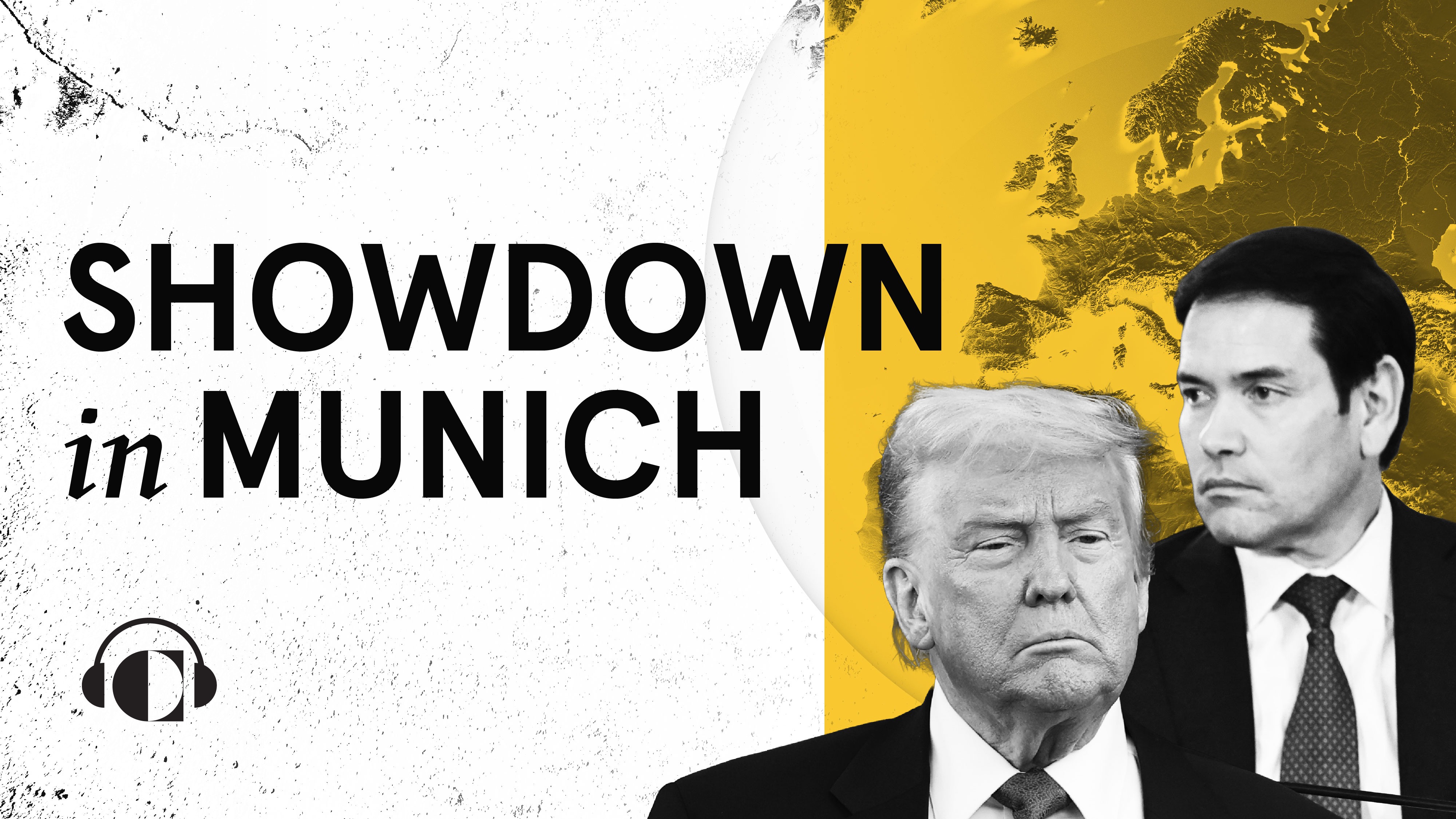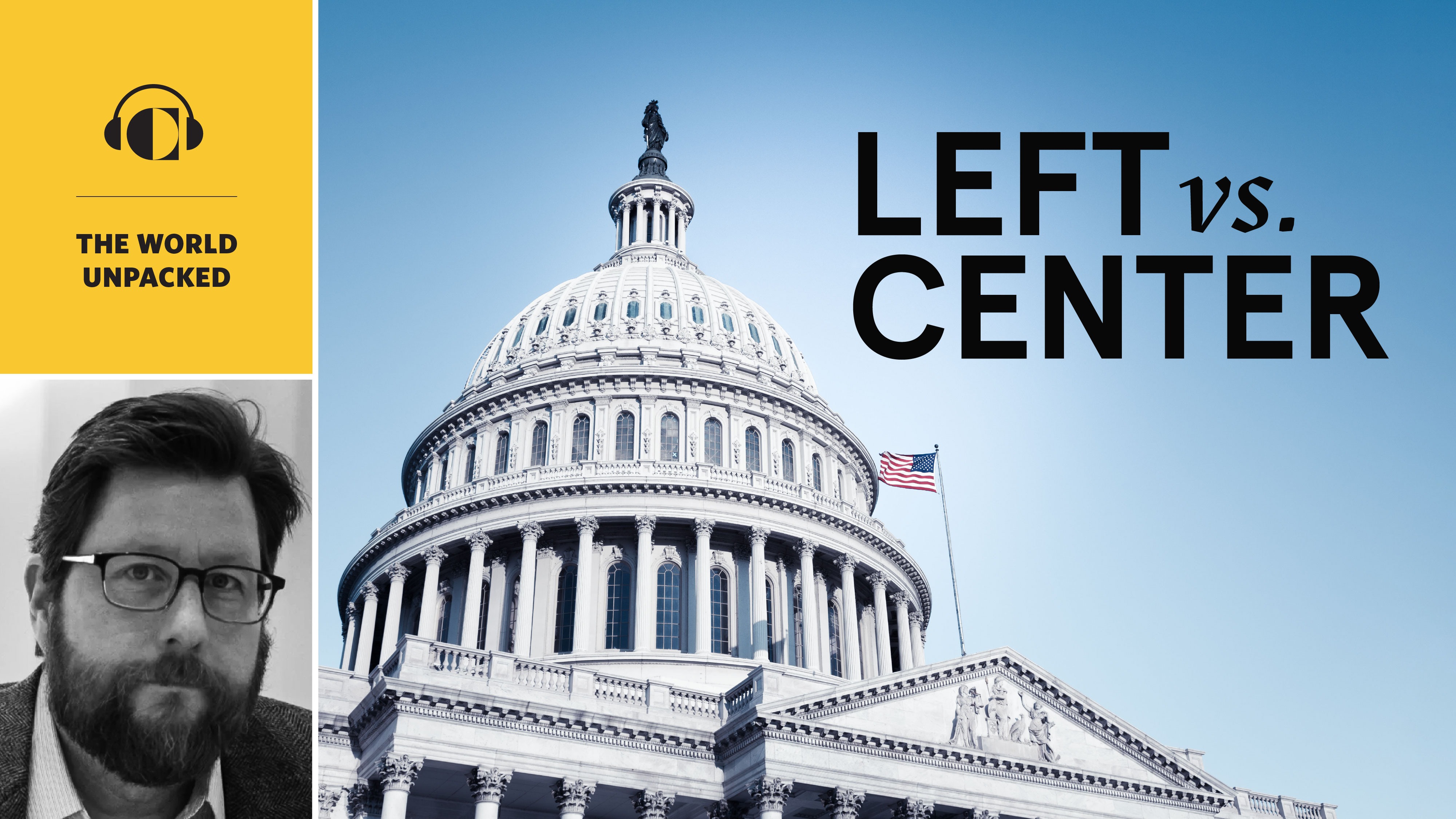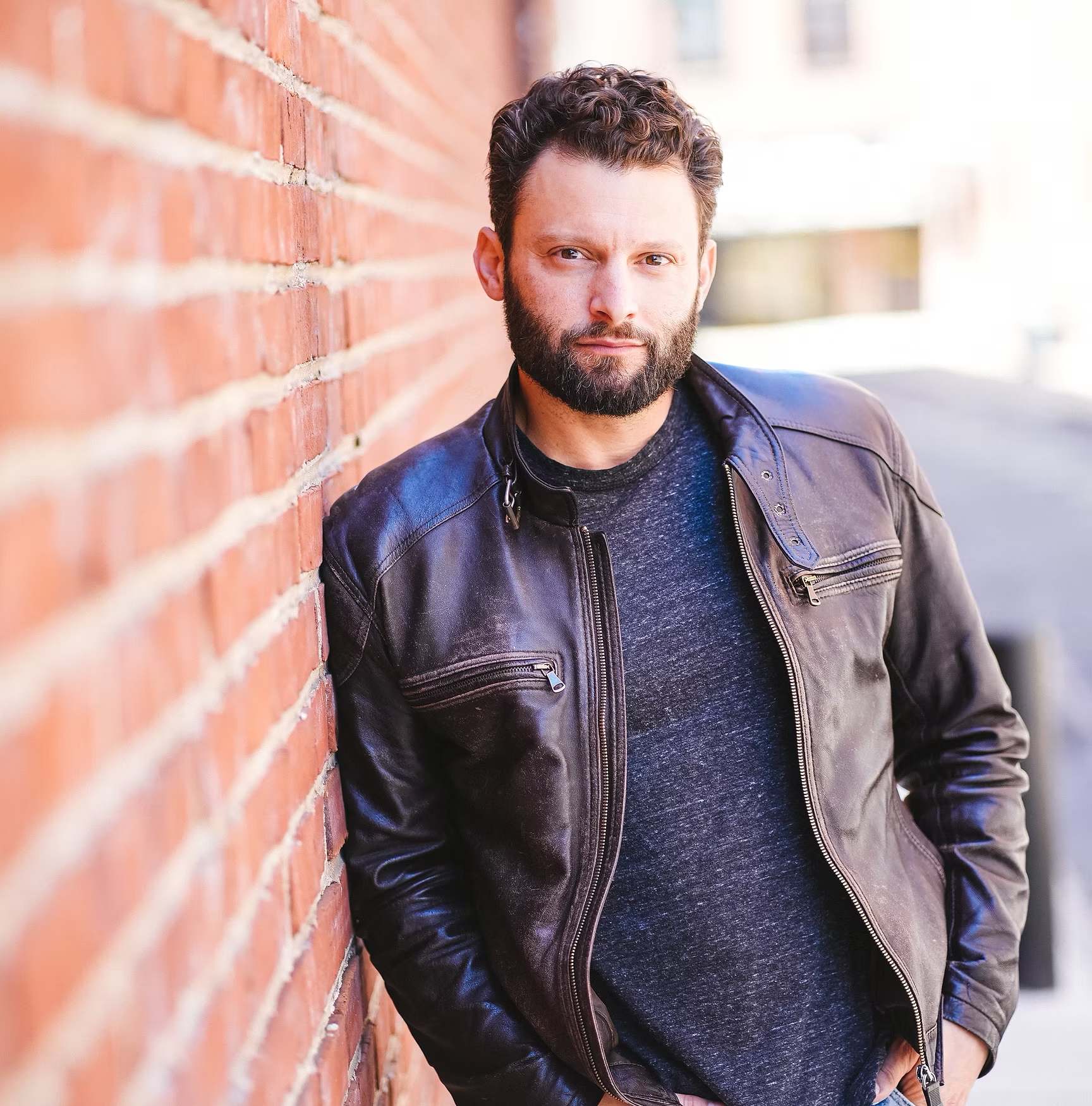Brazil’s Supreme Court has just convicted former president Jair Bolsonaro of attempting a coup to nullify his 2022 election loss. The country’s judicial system and Justice Alexandre de Moraes, a polarizing figure whom the co-conspirators had sought to assassinate, acted boldly, sentencing Bolsonaro to twenty-seven years in prison.
Brazil is now the global leader in democratic accountability for “self-coups,” a once-rare phenomenon that has surged recently, even in places such as South Korea and the United States. That’s why the world is watching Brazil’s grand experiment—especially in Washington, where President Donald Trump has levied massive tariffs to punish what he calls a “witch hunt” against his former ally.
Oliver Stuenkel, a prominent analyst of Brazilian politics, breaks down these events with Jon Bateman on The World Unpacked. Will Bolsonaro’s conviction restore democratic guardrails or further polarize the country? And what does it mean for the United States to intervene in the politics of a fellow democracy with unprecedented levels of economic coercion?
Transcript
Note: this is an AI-generated transcript and may contain errors
Jon Bateman: Right now, Brazil is in the middle of one of the world's most important experiments in democracy. It's just convicted its last president, Jair Bolsonaro, of plotting to nullify his election loss and sentenced him to 27 years in prison. In the past, these kinds of self-coups by incumbents were rare. But in the last few years, we've seen them surge, even in previously stable countries like the United States and South Korea. How does a country respond to such extreme political crimes? Do you go the American route and leave it up to voters to police the politicians? Or do you call upon the awesome power of the courts, even knowing that this will taint their legitimacy in the eyes of many? Brazil has now gone farther than anyone else down this treacherous second route, and the eyes of the world are on it. Today, I'm joined by Oliver Stuenkel, a leading commentator and analyst of Brazilian politics. He's going to tell you parts of this story you haven't heard before and unpack what it means for democracies around the world. I'm John Bateman, and this is The World Unpacked. Welcome to the podcast.
Oliver Stuenkel: Thank you very much. Thanks for having me.
Jon Bateman: Always happy to have a fellow bearded millennial on the show. I feel like that makes you almost like a quasi-kindred spirit, regardless of what it is we're going to talk about today. But this is a serious matter. We're here to talk about the coup in Brazil, Bolsonaro's conviction and sentencing. For Westerners, for non-Brazilians, I think the enduring image of this plot was the January 8th riot at the national capital area in Brasilia. This coup attempt had a lot more going on than that. There were assassination plots. There were secretly recorded cabinet meetings. Just walk us through a little bit some of the key details of what exactly Bolsonaro was convicted of doing that maybe people who have just seen the international headlines might've missed.
Oliver Stuenkel: So Brazil and the U.S. share a weird similarity when you looked at both countries politics for about 10 years. And Bolsonaro got elected two years after Trump. So Brazilians looked very carefully at what happened in the United States with Trump not accepting the result of the 2020 elections, the January 6th riots. And because of all these similarities, a lot of people, as we were going towards the 2022 elections in Brazil, said something like that could happen in Brazil as well because you did have a massive campaign by the Bolsonaro government to undermine public trust in the electoral system, which interestingly enough is very sophisticated. It's electronic voting. So we get the result hours after the polls close. And which is internationally recognized as being very safe and very reliable. So for months, the government was seeking to find fault, got actually to invite all the ambassadors of major countries to major meeting in Brasilia to the Capitol. And Bolsonaro gave a talk and basically said, our electoral system is unsafe. Preparing, seeming to prepare, the non-acceptance of the result if he were to lose. And opinion polls repeatedly show that this was the most likely scenario, that he would probably lose the election. At the same time, the government pursued a militarization of the government. So that's very different from what we saw in the United States.
Jon Bateman: And I think he even gave a speech where he said to the crowd, it's up to you which direction the military goes here. Specifically invoking that.
Oliver Stuenkel: As later came out, very specific plans, which involved assassinating the president-elect, the vice president-elect, and the member of the Supreme Court who had led the charge against Bolsonaro and who now has become a key member of the team of justices, which has Bolsonaro in jail.
Jon Bateman: Yeah, so there's a good portion of this coup plot that would be familiar to any American, right? The January 6th style riot, the paving of the way to delegitimize the results in advance and during and after the election. But then there are some also these other more stark elements here of a classic attempted coup or self-coup, right, of actually having a private meeting where Bolsonaro turned to the heads of the military and said, will you support me if I declare a state of emergency? People putting together an assassination plot or team that was, someone printed this out in the presidential office. Things that Americans might be surprised to see in the American context, but this was actually core to Bolsonaro's trial.
Oliver Stuenkel: The key elements of the accusation were the preparing for a military coup, having specific plans, reaching out to core constituencies, especially in the military. And it's really interesting in that context that the Biden administration had been pressuring Brazilian military officials for months to accept the result of the election. So this was no secret. Like, this was very much out there. This was the president, the Brazilian president making very clear that he believed that, you know, his, if he lost the election, that this would definitely be illegitimate and that he wanted to remain in power.
Jon Bateman: Was that pressure from Biden important to the coup's failure? I mean, what I've read is that, you know, the head of the Navy said, yes, I will support you in this, but the head the Army and the Air Force said, no, I won't. That was a kind of decisive moment in the formulation of the classic coup elements of this plot. Was that in some way related to foreign pressure, Biden, others?
Oliver Stuenkel: Absolutely. I think U.S. pressure was crucial. The United States coordinated with other governments, including in Europe, that, for example, the result would be immediately recognized. So very quickly, on the night of the election, governments around the world congratulated Lula and said, you know, this is, we respect the result. We congratulate Brazil for having this very sophisticated electoral system, which allows us to know the result very quickly. So that definitely played a role, and we do have evidence of the vice president, Bolsonaro's vice president who went on social media to say to his followers and the Bolsonaro supporters, you know, we understand that this is not an ideal scenario, but. If we were to go ahead with the plans articulated by the president, we would be completely isolated internationally. So I think this definitely played a role because Brazil's military is very dependent on U.S. technology, U.S. military equipment. They're anti-China. So U.S. pressure in that sense was crucial.
Jon Bateman: So, the coup plot was formulated, partially executed, failed. Bolsonaro drifted away. Lula became president. The investigation continued, and then there was this trial. What was it like for Brazilian society and the political system to witness this blockbuster event? People were watching it on television. You had Bolsonaro in the courtroom defiantly testifying in front of one of the very same Supreme Court justices whom his allies were accused of attempting to assassinate. How was this received within the Brazilian system?
Oliver Stuenkel: I think this trial has been historic in many ways because contrary to the United States, military coups have been part of Brazilian history. Many succeeded, many failed, but it's been a common occurrence. So when Brazil became a democracy in the late 1980s, there was a huge concern as the constitution was drafted to avoid the repetition of the past with new military coups taking place and asserting civilian control over the armed forces has been a major challenge. Seeing somebody who attempted to stage a coup face justice and be convicted was obviously very important because historically those who attempted to stage coup either failed and were then granted amnesty and basically reintegrated into society and political life. Or they succeeded and then began to govern and obviously it didn't face any negative consequences. So an incredibly important event to support Brazil's democracy. Now having said that, Brazil's society is very polarized just like in the United States and the election was incredibly close. So Lula won the election with 50.9%. So half of Brazil, a little more than half of Brazil had champagne on ice when Bolsonaro was convicted but the other half was saying that this is illegitimate and that it hasn't actually yet, we haven't actually turned the page and so to say we've now managed to convict somebody who attempted to stage a coup and now the country is overcoming this moment of polarization. Quite to the contrary, it has actually for now at least hardened polarization further with half of the population not trusting what the Supreme Court does.
Jon Bateman: I think we're getting at the heart of why this matters globally for democracies. Because as we've seen in the U.S., South Korea, Brazil, elsewhere, there's a dilemma that a democracy is in when a charismatic leader starts breaking down those guardrails and kind of dares the system to push back. In this case, pushing back meant criminal charges, barring Bolsonaro from office. Essentially, extreme behavior by a leader forces the system to choose an extreme response in return or pure surrender. And both of those have real downsides. If you respond in extreme ways as a judicial system, you could be seen as arrogating power to judges. Criminalizing politics. Losing social legitimacy for the court. But if you don't act, then you're inviting this kind of behavior in the future.
Oliver Stuenkel: And I think that a lot of people who criticize the courts don't recognize that Brazil faced an extreme challenge which required a fairly radical response. I think the courts took a huge risk because they also knew that by taking a very active stance, they would lose part of their legitimacy in the eyes of Bolsonaro supporters, which is actually sort of inevitable. And this obviously weakens the courts because there'd be other very contentious issues that they'll have to deal with in years to come. And now the challenge is, how do you actually rebuild the trust in the courts, which have been in the limelight of Brazilian politics for a long time? So, everybody in Brazil knows the names of the Supreme Court justices and they know what each justice's preferences are. All this has been televised. In order to defend their decisions, they've become very mediatic. They give lots of interviews. They're on the front pages of newspapers on a regular basis. And I think now the big challenge is, how do they step back?
Jon Bateman: Yeah, not only within Brazil, but I'll just speak for myself here. Justice Moraes, he is the only judge outside of my own country in the United States that I could name and identify by face. And how did that come to be? I was actually introduced to him by Elon Musk's tweets. Elon Musk got very agitated about the social media censorship and the pressure on X specifically to comply with Brazilian court rulings to have a physical person in the country that they could reach out and touch to force compliance. And so, it's an example of what you're talking about, the kind of globalized right-wing populist backlash where someone like Moraes actually is becoming a hate figure, even amongst U.S. conservatives. There's memes of him kind of being portrayed as the sort of dark, sinister figure.
Oliver Stuenkel: The other issue, which I think, for example, the way the trial occurred was almost too mediatic with each justice basically speaking to the nation for a very long time and sort of justifying their decisions. You could have done that in writing and just make an announcement and say, the vote is this, here are the, here are how we explain this, et cetera, rather than for days having kind of a spectacle on television, which I think deepens the polarizing nature of the courts even more.
Jon Bateman: It's a really interesting dilemma for any democracy because as an institutionalist, you might want the courts to be the ultimate guardians of democracy and to be making these difficult calls about when and how to kind of judicialize or criminalize politics. And yet these are not trained political actors. They may in some sense be breathing the air of politics. But I mean, would you say in Brazil that these justices might or might not have the political sophistication to be treading carefully through these dilemmas in a way to maximize the legitimacy of what they're doing.
Oliver Stuenkel: Well, not all of them, I think. And I think some have become too political actually and have engaged too much. I mean, we've had cases of a Supreme Court justice when he was elected the president of the court, organizing a party with hundreds of celebrities and decision-makers from politics, the economy, sort of being, from what I understand, sort of too visible in the public eye and becoming too much of a celebrity. Of course, when you talk to them, they say, well, we must engage the media because our detractors are very sophisticated, very mediatic. They produce a lot of content on social media to demonize us. So we must respond. So the Supreme Court justices in Brazil, some of them are very active on social medial. That's fascinating. So for example, the decision.
Jon Bateman: What are they posting?
Oliver Stuenkel: Well, the decision, for example, to block X in Brazil after Elon Musk had refused to name a physical representative of X in Brazil, that decision was posted by Judge Moraes on X. Okay. And a lot of people said, you know, this is crazy. I mean, this becoming kind of a spectacle so that the courts should respect sort of the traditional rule.
Jon Bateman: I'm so curious about Moraes' social media activity. Is he replying to people? Is he making jokes?
Oliver Stuenkel: No, I think it's still fairly, let's say, official. But the question is, should a justice actually be on social media? Yes. Right, and that of course, or should he be visible as kind of a political celebrity? Which is of course difficult also because it ends up at times elevating the justices to being capable of solving problems that, let's say, the legislature and the executive cannot solve. Yes. And that has been aggravated, I think, by the fact that several of the justices have direct ties in previous episodes of their life, very much tied to specific political figures. So for example, Lula's former lawyer is on the Supreme Court. Moraes, interestingly enough, is not tied to the left at all. He was actually close to former President Temer, who's right wing, and was actually disliked by the left and is now celebrated as a kind of a hero of the left.
Jon Bateman: Many parallels to the United States, how a figure like Bob Mueller, who would previously have been understood as a fairly conservative, conventional Republican figure ultimately became a kind of resistance icon and sort of left-wing saint in the United States because so many people placed their hopes on him as a prosecutor and investigator to resolve these political problems. I want to ask about the Supreme Court's decision in Brazil. It picked its poison, right? It chose the path of very forceful action, banning Bolsonaro from office, convicting him of these political crimes, sentencing him to an eye-popping 27 years in prison. How will this play out looking ahead five, 10 years? What are going to be the consequences to the court stature and to the resort to the law in Brazilian politics? Is there a scenario in which, I guess the good scenario would be the right-wing and Bolsonaro's movement accepts what happens, re-legitimizes the courts, the courts step back from the political maelstrom, politics continues on as one would hope within these political guard rails now restored. The bad scenario might be a continued aggressive effort to de-legitimize the judicial system. And perhaps to turn it around so that a future right-wing president might start prosecuting his opponents. Which path are we on? How can we tell? What should we be watching for?
Oliver Stuenkel: We'll have to see how, for how much time leaders, political leaders on the right will embrace the rhetoric by the far-right and by many Bolsonaro supporters, by the Bolsonaro family, that this ruling is illegal and that the goal of all the right-wing politicians in Brazil should be to free Bolsonaro basically. And as long as we're stuck there, so the healing process cannot begin at all. Now this may be a phase of a couple of months and then at some point some right-winger leader who would like to become president next year says, you know what, I didn't like the ruling but we have to accept it. And some have kind of insinuated that they would be willing to move into that direction. The problem is Bolsonaro remains the most popular figure in the opposition. The most popular right-wing leader, very charismatic, comes across as very authentic. And that puts leaders on the right in a very difficult position because basically ideally, if you want to become president next year, if you want to win the election, you'd need Bolsonaro's blessing. In order to do that, you have to say, that the decision to put him in jail is unacceptable and illegal and promise that once you become president, you will appoint judges who will reverse that ruling basically. So as long as that's the status quo, the country won't really move on.
Jon Bateman: The cross currents and interweaving of U.S. and Brazilian politics is utterly fascinating here. And I think you've already indicated that January 6th Capitol riot in the US was an inspiration and a proof of concept for the January 8 attacks in Brazil. Would you equally say that the judicial actors in Brazil were watching what you might call the failure of the judicial system to respond to Trump in particular and explicitly choosing to take a different path based on the lessons of the U.S. failure?
Oliver Stuenkel: No, absolutely. I think this was very present in the Brazilian public debate. And I think a perception that the situation in Brazil is more dangerous because you did have the armed forces partially on board with Bolsonaro's coup plans. It wasn't like it was rejected entirely. There were parts of the armed forces willing to go ahead. There was a person who was planning to kill Moraes who took position and Moraes showed up. He did show up. But that day, Moraes chose a different trajectory to go to work. So this was actually much more advanced and much more serious potentially, at least from a Brazilian perspective. As to what had happened in the United States. I think the courts were very aware that unless they adopted a more radical stance then Brazil could very easily fall back to the patterns that we've seen over the past 200 years which in the U.S. is a bit different because it's sort of a novel experience. But also this Supreme Court by definition, by institutional design is more powerful than in the United States and makes... Takes many more decisions, thousands of decisions per year and oftentimes is involved directly much faster than is the case in the US. But absolutely I think the January 6th riots and sort of the perception by the Brazilian courts that the US didn't react adequately to this threat, to its democracy profoundly shaped the way that both the courts and society as a whole I think reacted to that.
Jon Bateman: Just to bookend this US-Brazil cross-pollination, you've got Bolsonaro himself losing the election, flying to the United States. I think he was in Florida during the January 8th attacks in President Trump's backyard, metaphorically speaking of course. Trump then takes office and seeks to very powerfully punish Brazil for this set of judicial actions taken against Bolsonaro. So, we now have broad-based 50% tariffs against a wide range of Brazilian goods. First of all, you're now here living in the DC area. Anything that you're personally paying more for is your Brazilian coffee, your Brazilian nuts.
Oliver Stuenkel: Well, yeah, absolutely. I mean, I'm addicted to coffee, of course. So I think that's a big, that's very relevant. But Brazil actually provides a large amount of products that go much beyond sort of commodities. It's also, it sells steel, for example, to the United States. I mean a Brazilian airplane, Embraer, is utilized a lot for regional flights, for example in the United States. Yeah. You have cement cellulose, for example, to produce tissues here in the U.S. So all of that is in part being impacted. But coffee certainly, as Brazil being the major, the world's largest coffee exporter, is certainly one of the items that is most tangible also for U. S. Consumers, absolutely.
Jon Bateman: In some ways, as an American, it's a case study in some of the perils of tariffs because the products that you've described, agricultural goods, commodities, those hit U.S. Consumers in the pocketbook. And then the other pieces, metal, aircraft parts, machine parts, these are intermediate goods that U. S. Manufacturers are utilizing in order to build and sell products in America and elsewhere. So, there's an impact in the United States, but presumably there's a impact in Brazil as well. How is this affecting the Brazilian economy so far?
Oliver Stuenkel: Nowadays, Brazil exports more to China than it exports to the United States and Europe combined. So, the impact has been limited, broadly speaking, but pretty significant in specific sectors. So, you have parts of the country in the South, paradoxically, actually, in states that voted for Bolsonaro, where entire industries are hugely affected. And that, of course, has led the Brazilian government to provide a lot of aid to parts of the Brazilian economy impacted by that. It has also created a political dilemma for the right because initially right-wing politicians have supported the tariffs and said, this is important because Trump is helping Bolsonaro. But at the same time, these are measures which clearly impact Brazilian voters. I mean, they impact the Brazilian economy in a very tangible way. I mean this is basically seen as US sanctions on Brazil and they're very unpopular.
Jon Bateman: It's a very awkward scenario for a fundamentally nationalist populist movement like Bolsonaro supporters to be openly advocating for foreign intervention in order to attack and diminish a Brazilian political process.
Oliver Stuenkel: Right, and you saw that, and this was symbolized by Bolsonaro supporters gathering in several cities across Brazil, protesting against the conviction, calling for amnesty and waving American flags. And when asked about that, it was quite interesting because Eduardo Bolsonaro, whose Bolsonaro's son said, this is a sign of gratitude because we're thanking Bolsonaro for coming to help us. But parts of the right said, this is unacceptable. Because this was on Brazil's Independence Day and you had people waving American flags. So, there's an interesting element to that because Lula's approval ratings had been sliding a bit prior to this entire episode. And the economy is doing so-so. So, when Trump imposed the tariffs, Lula suddenly had something he could utilize and which will probably be the key theme of the presidential elections next year, which is sovereignty. Whereas numerous right-wing politicians in Brazil have utilized the red MAGA hat. He has now launched sort of a blue hat which says Brazil for Brazilians, which is also, or we defend Brazil's sovereignty or something like that.
Jon Bateman: And this idea of the red being the conservatives and the blue being the liberals, is that a traditional coloration in Brazil? Or do they borrow that from the United States? Or do they borrow that from the United States? I want to consider this from the perspective of U.S. Foreign policy now. And let's put on our MAGA hat for a moment and think about this from Trump's point of view. Trump purports to believe that what's happening inside Brazil is a violation of his sense of democratic principles, fair play, rule of law, human rights, however you want to describe it. In response, he has unleashed this massive economic assault on Brazil. I'm not aware of any prior moment in modern U.S. History where we have used such a large economic weapon to go after any kind of rule of law or democratic grievance. Traditionally, in places like Zimbabwe, you might have targeted sanctions on top officials. In places like Iran or North Korea, we might have much more sweeping sanctions, but those are really about a wide range of geopolitical complaints, not just the mismanagement of an election, again, from Trump's point of view. What do you make of this new, very powerful form of American interventionism focused on undoing the internal machinations of an election using some of the most sweeping and potent tools that America has?
Oliver Stuenkel: So, we've seen several cases of U.S. interventionism in the domestic affairs of other countries since Trump came back to power, and I think there's several triggers that usually explain that. And the first is when a current or former right-wing leader or candidate faces prosecution by the judiciary. That has been the case in Brazil, in Colombia with Uribe, in France. With Le Pen. And I think Trump, having been a prosecutor himself, kind of sees himself in these people and says, I've had this very same experience, I want to help these people who are ideological allies. He looks at this in a very partisan way to support candidates like him against what he sees as unjust prosecution. So that's the first thing. The second thing is, I think, when there's elections coming up and there's a MAGA candidate or a pro-Trump candidate, and he would like to help and voice his support, such as in Poland or in Romania, that sometimes works, but it also may produce a backlash. And then I think the third issue are just kind of cultural war topics. So for example, the law of land redistribution in South Africa, or France's response to anti-Semitism, or the way that Scotland, for example, seeks to regulate anti-abortion protests, all these kinds of things trigger a response by the U.S. Government. In general, I think that the downside, the risk, for the United States is significant because these strategies are perceived as very aggressive. They may find support in parts of society, like some Bolsonaro supporters are happy about U.S. Intervention and domestic affairs in Brazil. But especially, I think, more centrist voters who actually value their sovereignty do see this. As an undue interference in domestic affairs. And I think it has, these cases have been utilized by governments to say that we need to hedge, we need diversify our partnerships. We need to reduce our reliance on the United States because this is an unpredictable partner, basically. So, I think the cost is quite significant.
Jon Bateman: I think if there's anything that we can take away from this conversation, it's number one, what happens in Brazil obviously matters for Brazilians, for the region. It's a country of more than 200 million people. It's major anchor economy in Latin America. But much more than that, it matters for democracies around the world because there are many internationalizing cross currents, judges, politicians, watching what's happening in one country. Learning templates, proof of concepts, trying to adapt to what they see as the mistakes or the successes of others. And right now, Brazil is the only country that has gone so far as to push this judicialization of the democratic guard rails to the hilt to maximally punish such an extreme rule breaker. And we don't know how that's going to play out, but how that does play out will influence what other countries do and think.
Oliver Stuenkel: Absolutely, I think the case of Brazil, the response, the strategy adopted in Brazil is closely watched in many countries around the world because you do have a lot of democracies that have recently faced challenges, that will face challenges in the future. This is a much more typical sort of case around the world than one would like to believe. And I think that that explains in part why the prosecution of Bolsonaro has gained so much visibility.
Jon Bateman: Great conversation. Thanks for being on the show.
Oliver Stuenkel: Thank you for having me.










